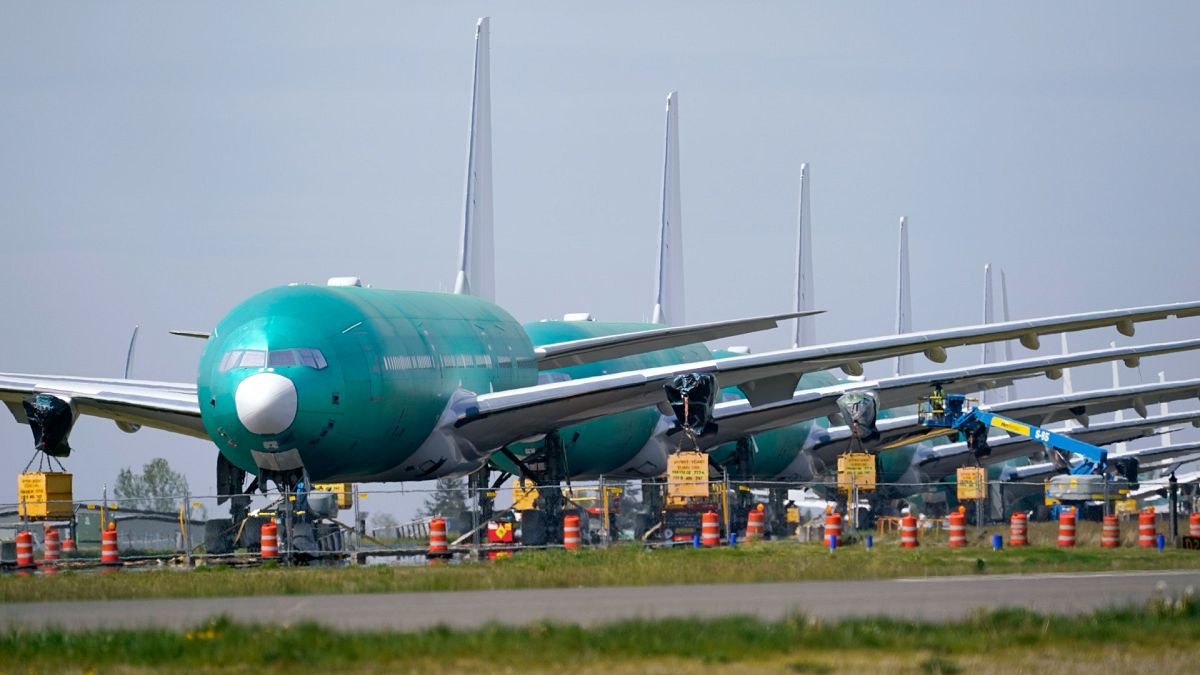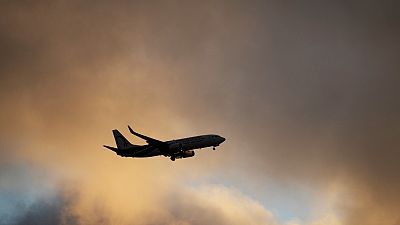Boeing has grounded a fleet of test aircraft as the group continues to deal with the fallout of a door plug blowing off an Alaska Airlines flight in January this year.
Boeing has grounded its fleet of 777X test aircraft following last week's discovery of a faulty engine part in one of the aircrafts.
The component in question is a thrust link, which connects the airframe and the engine, helping to transfer the thrust of the engine to the airframe. The issue was found during a scheduled maintenance.
According to The Air Current, two other 777X test aircrafts also had issues with the same part. Following this, Boeing announced it was also checking the remaining planes of the same model.
The company has already said it is replacing the part and will be starting flight testing again once this has been done.
Referring to the model, Boeing said on its website: "The new Boeing 777X will be the world's largest and most efficient twin-engine jet, unmatched in every aspect of performance. With new breakthroughs in aerodynamics and engines, the 777X will deliver 10% lower fuel use and emissions and 10% lower operating costs than the competition."
The aircraft has already faced a number of issues, with its certification being delayed by the Federal Aviation Administration (FAA) and its delivery schedule pushed back by five years, to 2025.
However, key clients such as Emirates are not convinced that they will receive their orders by 2025, instead expecting them to get pushed to mid-2026.
Boeing is also still dealing with the fallout of a door plug blowing off an Alaska Airlines flight earlier in January this year. This led to an FAA investigation into Boeing which revealed a slew of manufacturing and quality control issues.
The company announced a net loss of $1.44bn (€1.30bn) for the second quarter of 2024, mainly because of higher-than-expected costs and a delay in programme schedules.
Boeing invests in sustainable aviation fuel (SAF) production industry in Australia
Boeing has revealed that it is to be one of the early investors in Wagner Sustainable Fuels, to help develop its sustainable aviation fuel production plant in Brisbane, Australia.
The investment is expected to go a long way in helping the aviation sector reduce its emissions, ramp up local production of SAF and in time, grow the SAF network worldwide. It is also expected to help support Australia’s own fuel security by reducing the need for it to import jet fuel.
Kimberly Camrass, Boeing’s sustainability lead for Australia and New Zealand, said in a news release, “We’re proud to invest in this project because it will make a real difference in developing a SAF industry in Australia. Accelerating local SAF supply enables Australia’s own climate goals and supports the global commercial aviation industry’s commitment of net zero CO₂ emissions by 2050.”
Matt Doyle, the chief executive officer of Wagner Sustainable Fuels, also said “Our partnership with Boeing to advance the Wagener SAF refinery in Brisbane is a commitment to proactively grow the SAF industry in Australia. The investment from the Queensland Government and Boeing will underpin Australia’s first, fully integrated SAF production facility.”















